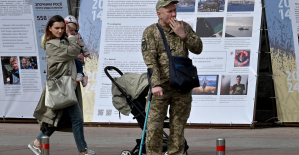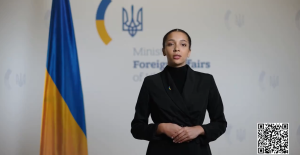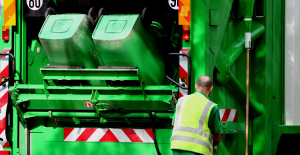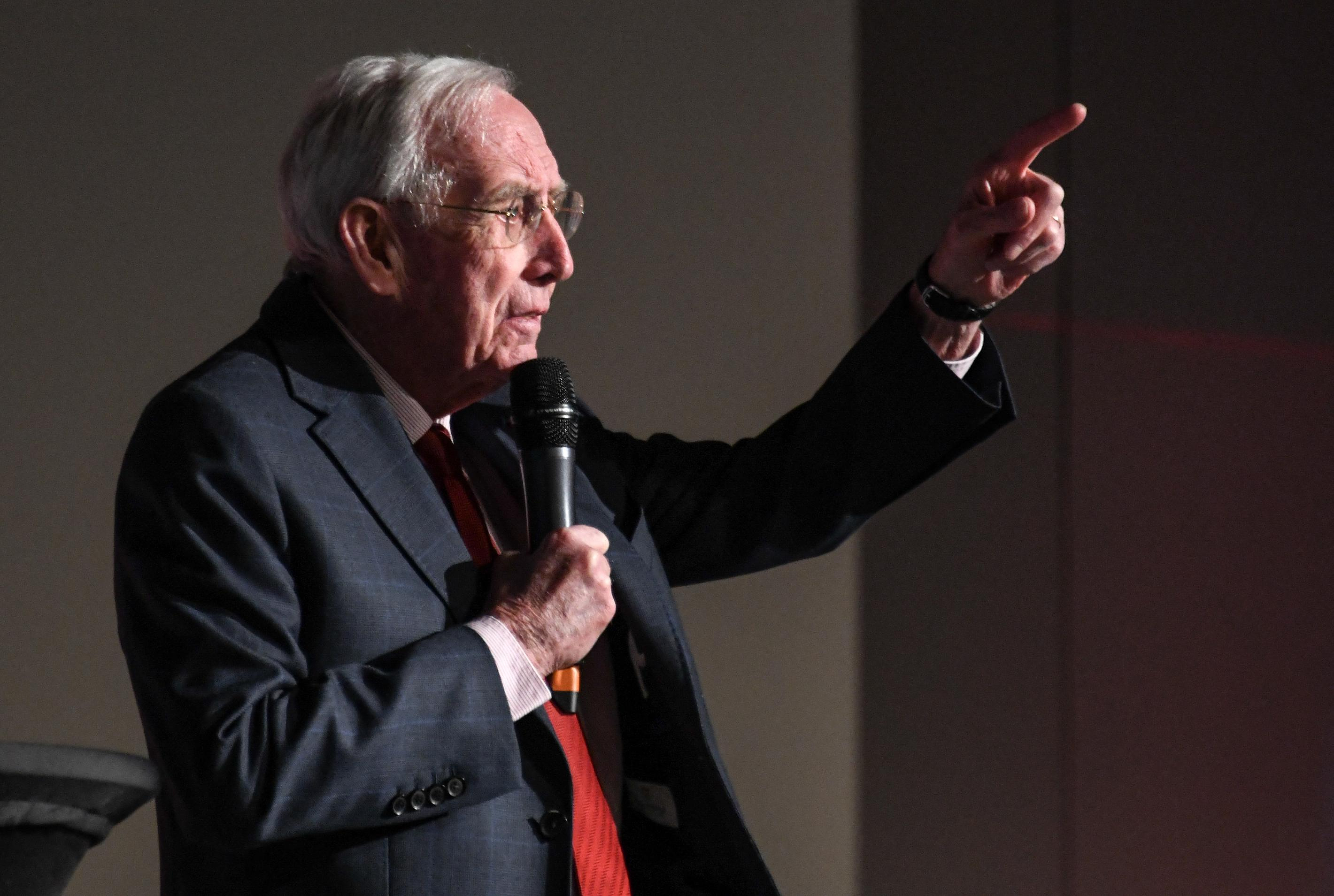In the midst of Russia's war of aggression in Ukraine, the Germans are dramatically losing confidence in their own armed forces. Only 35 percent of those surveyed stated that they had “very great” or “great” trust in the Bundeswehr as a whole. This value marks by far a record low in the past 25 years. This is the result of the new Germany trend that Infratest Dimap collected on behalf of ARD “Tagesthemen” and WELT. Questions about the Bundeswehr were asked in the survey for the first time in 1998.
In the course of the war and the disputes over German arms deliveries to Ukraine, new deficiencies in the equipment and procurement system of the Bundeswehr and criticism of the conduct of Christine Lambrecht (SPD), who was Defense Minister from the end of 2021 to mid-January of this year, have become apparent in recent months was.
A majority of 54 percent of Germans now show “little” or “no” confidence in the Germany trend that “the Bundeswehr and its allies could ward off a possible attack on NATO territory”; 38 percent see it more positively. Accordingly, 85 percent do not trust that the current equipment of the Bundeswehr is sufficient for its mission. And 60 percent lack the confidence that the Bundeswehr will act "appropriately against right-wing extremist ideas in its ranks".
The federal government's decision to deliver German battle tanks to Ukraine after all is approved by 52 percent of those surveyed; However, 39 percent consider it a mistake. The number of those who fear the Federal Republic of Germany being directly involved in the war is also growing: 59 percent are “greatly” or “very gravely” concerned that Germany could be drawn directly into the war. This is an increase of three percentage points compared to October 2022.
On the other hand, concern about the consequences of the war for economic development in Germany is receding. Another 68 percent express concern that the economic situation in Germany is deteriorating – a drop of twelve percentage points compared to April last year, when the war broke out just two months ago. 60 percent now fear that “Russia will attack other countries in Europe”. And 82 percent are “very” or “very” worried about the people of Ukraine – a nine-point drop from April 2022.
As far as the assessment of the federal government's Ukraine policy is concerned, a trend is emerging: a growing majority of 58 percent of those surveyed express the opinion that the diplomatic efforts to end the war did not go far enough - in East Germany 61 percent share this view . And the proportion of those for whom supporting Ukraine with weapons goes too far rises to 35 percent overall: 55 percent hold this position in eastern Germany and 30 percent in western Germany.
All in all, supporters of the Greens (65 percent) and SPD (61 percent) in particular are satisfied with the course taken by the federal government in the Ukraine war. This is followed by supporters of the CDU/CSU with 38 percent and supporters of the FDP with 33 percent. However, 92 percent of AfD supporters are “less” or “not at all satisfied”.
Ten years after the founding of what has now become a radical right-wing party, some people’s views of the AfD are also changing: In September 2013, 20 percent of those surveyed at the time “rather” agreed with the sentence: “I would like it if the AfD were represented in the Bundestag. Today, almost a third (32 percent) "rather" agrees with the sentence: "I think it's good that the AfD is represented in the Bundestag."
Three quarters are of the opinion that the AfD does not distance itself enough from right-wing extremist positions. 58 percent are in favor of the other parties represented in the Bundestag excluding cooperation with the AfD, 36 percent are against it. And 16 percent of those surveyed think it's good that the AfD shows understanding for Russian positions in the Ukraine war.
If there were a federal election next Sunday, the SPD could improve by two points to 20 percent compared to the previous month. This puts her ahead of the Greens, who lose one point and reach 18 percent. The common traffic light coalition partner FDP recorded a slight gain from one point to seven percent. The CDU/CSU are ahead with 27 percent, two points less than a month ago. The AfD remains at 15 percent. The left comes to four percent (minus one point) and would therefore no longer make it into the Bundestag.
In the ranking of satisfaction with top politicians, FDP leader Christian Lindner and Economics Minister Robert Habeck (Greens) are among the clearest winners, each with increases of three points compared to the previous month. Habeck is in second place behind Foreign Minister Annalena Baerbock (Greens), Chancellor Olaf Scholz (SPD) is in third place - and fourth place is taken by the new Defense Minister Boris Pistorius (SPD).
For the Deutschlandtrend, Infratest Dimap surveyed 1,328 eligible voters from January 30 to February 1 - in 868 telephone interviews and 460 online interviews. The error tolerance is between two and three percentage points.
"Kick-off Politics" is WELT's daily news podcast. The most important topic analyzed by WELT editors and the dates of the day. Subscribe to the podcast on Spotify, Apple Podcasts, Amazon Music, among others, or directly via RSS feed.

 Poland, big winner of European enlargement
Poland, big winner of European enlargement In Israel, step-by-step negotiations for a ceasefire in the Gaza Strip
In Israel, step-by-step negotiations for a ceasefire in the Gaza Strip BBVA ADRs fall almost 2% on Wall Street
BBVA ADRs fall almost 2% on Wall Street Ukraine has lost 10 million inhabitants since 2001... and could lose as many by 2050
Ukraine has lost 10 million inhabitants since 2001... and could lose as many by 2050 Sánchez cancels his agenda and considers resigning: "I need to stop and reflect"
Sánchez cancels his agenda and considers resigning: "I need to stop and reflect" The Federal Committee of the PSOE interrupts the event to take to the streets with the militants
The Federal Committee of the PSOE interrupts the event to take to the streets with the militants Repsol: "We want to lead generative AI to guarantee its benefits and avoid risks"
Repsol: "We want to lead generative AI to guarantee its benefits and avoid risks" Osteoarthritis: an innovation to improve its management
Osteoarthritis: an innovation to improve its management Ukraine gets a spokesperson generated by artificial intelligence
Ukraine gets a spokesperson generated by artificial intelligence The French will take advantage of the May bridges to explore France
The French will take advantage of the May bridges to explore France Organic flour contaminated by a recalled toxic plant
Organic flour contaminated by a recalled toxic plant 2024 Olympics: Parisian garbage collectors have filed a strike notice
2024 Olympics: Parisian garbage collectors have filed a strike notice Death of Paul Auster: Actes Sud says he is “lucky” to have been his publisher in France
Death of Paul Auster: Actes Sud says he is “lucky” to have been his publisher in France Lang Lang, the most French of Chinese pianists
Lang Lang, the most French of Chinese pianists Author of the “New York Trilogy”, American novelist Paul Auster has died at the age of 77
Author of the “New York Trilogy”, American novelist Paul Auster has died at the age of 77 To the End of the World, The Stolen Painting, Border Line... Films to watch this week
To the End of the World, The Stolen Painting, Border Line... Films to watch this week Omoda 7, another Chinese car that could be manufactured in Spain
Omoda 7, another Chinese car that could be manufactured in Spain BYD chooses CA Auto Bank as financial partner in Spain
BYD chooses CA Auto Bank as financial partner in Spain Tesla and Baidu sign key agreement to boost development of autonomous driving
Tesla and Baidu sign key agreement to boost development of autonomous driving Skoda Kodiaq 2024: a 'beast' plug-in hybrid SUV
Skoda Kodiaq 2024: a 'beast' plug-in hybrid SUV The home mortgage firm rises 3.8% in February and the average interest moderates to 3.33%
The home mortgage firm rises 3.8% in February and the average interest moderates to 3.33% This is how housing prices have changed in Spain in the last decade
This is how housing prices have changed in Spain in the last decade The home mortgage firm drops 10% in January and interest soars to 3.46%
The home mortgage firm drops 10% in January and interest soars to 3.46% The jewel of the Rocío de Nagüeles urbanization: a dream villa in Marbella
The jewel of the Rocío de Nagüeles urbanization: a dream villa in Marbella Europeans: a senior official on the National Rally list
Europeans: a senior official on the National Rally list Blockade of Sciences Po: the right denounces a “drift”, the government charges the rebels
Blockade of Sciences Po: the right denounces a “drift”, the government charges the rebels Even on a mission for NATO, the Charles-de-Gaulle remains under French control, Lecornu responds to Mélenchon
Even on a mission for NATO, the Charles-de-Gaulle remains under French control, Lecornu responds to Mélenchon “Deadly Europe”, “economic decline”, immigration… What to remember from Emmanuel Macron’s speech at the Sorbonne
“Deadly Europe”, “economic decline”, immigration… What to remember from Emmanuel Macron’s speech at the Sorbonne These French cities that will boycott the World Cup in Qatar
These French cities that will boycott the World Cup in Qatar Top 14: Fijian hooker Narisia leaves Racing 92 and signs for Oyonnax
Top 14: Fijian hooker Narisia leaves Racing 92 and signs for Oyonnax Europa League: Jean-Louis Gasset is “wary” of Atalanta, an “atypical team”
Europa League: Jean-Louis Gasset is “wary” of Atalanta, an “atypical team” Europa League: “I don’t believe it…”, Gasset jokes about Aubameyang’s age
Europa League: “I don’t believe it…”, Gasset jokes about Aubameyang’s age Foot: Rupture of the cruciate ligaments for Sergino Dest (PSV), absent until 2025
Foot: Rupture of the cruciate ligaments for Sergino Dest (PSV), absent until 2025
















